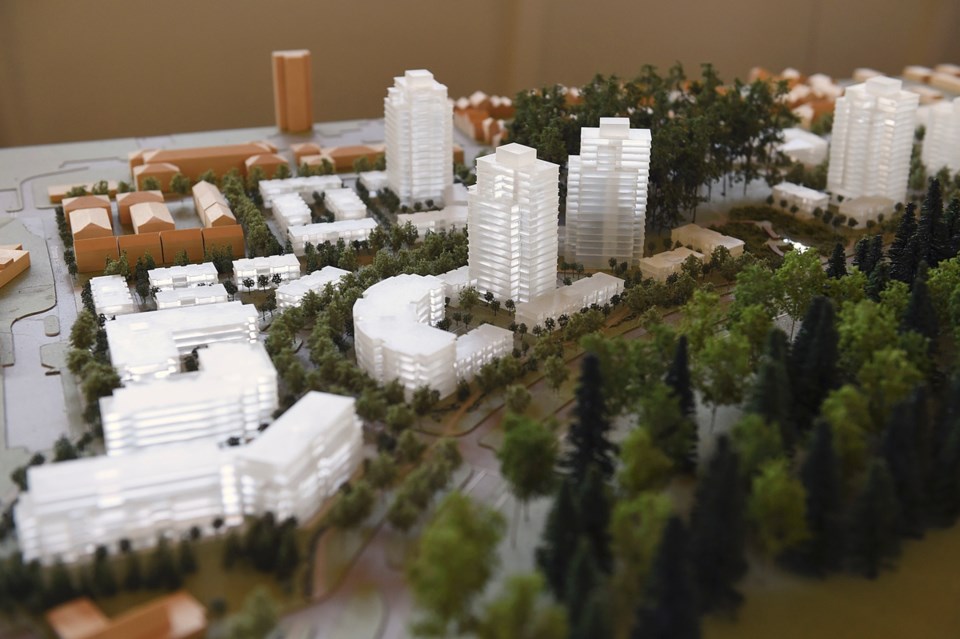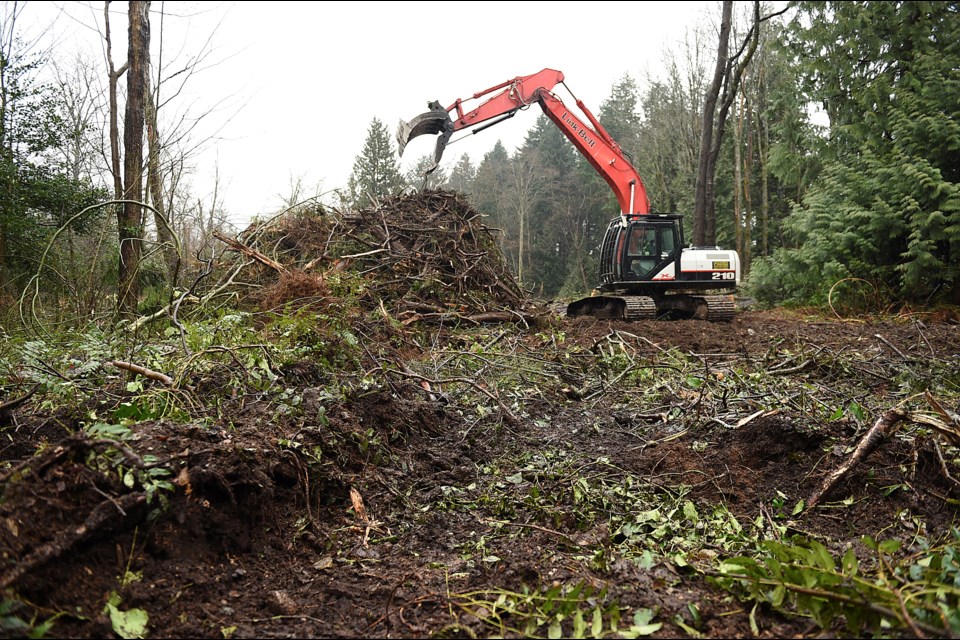The Musqueam Indian Band made history this week by breaking ground on a massive residential development that will be spread over 21.4 acres of its own land near the University of B.C.
The construction of the development, which will include four 18-storey highrises, several rows of townhouses and mid-rise apartment buildings, marks the first time in the histories of the city and endowment lands that a First Nation is behind a major development on its own land in Vancouver.
“It’s a very exciting time for myself personally, having been involved in this project, but also obviously for the Musqueam people,” said Jay Mearns, a Musqueam band member and operations manager of the Musqueam Capital Corporation.
The housing planned for the project will create space for an estimated 2,500 residents, who will have access to a community centre, childcare facility, a grocery store, restaurants, a public plaza, a large park and wetlands area. The project will include “affordable workforce housing” and a mix of rental units.

The land, which runs along University Boulevard and is bounded by Acadia Road, Toronto Road and Ortona Avenue, was returned to the band in 2008 by the provincial government as part of a reconciliation package. The nearby University Golf Course lands and the land on which the River Rock Casino was built in Richmond were included in the deal.
Earlier this week, a backhoe was on the property clearing trees and brush to prepare for construction. Crews were also on site to ensure any artifacts possibly left behind by the band’s ancestors were not disturbed or damaged.
About half of the site will be “selectively harvested” of a variety of trees, including red alder, cedar, maple, cottonwood, cherry and fir. Those trees will be used by the band in the design of the project, to make art, canoes, house posts and to be used in the process to smoke fish.
“We’re not taking anything to the dump,” said Doug Avis, the vice-president of real estate for the Musqueam Capital Corporation, noting some of the taller Douglas Fir trees will remain as part of the development.
Avis said the band has yet to choose a developer for the project, which is expected to be given a name soon. For years, it has been commonly referred to as “Block F,” its legal planning name.
For Mearns, he said the project will “kickstart” the band’s economic strategy to become self-sustainable, which will mean less reliance on government transfer payments.
“It will allow us to do other things to help develop our people in education and in employment and in other areas where we otherwise wouldn’t be able to, based on our funding arrangements with the government,” he said.
The provincial government gave the project the green light last fall after an extensive process that included public meetings. Vancouver city council did not have a say in the project because the endowment lands are the jurisdiction of the provincial government.
The project is one of many to come for the Musqueam, which has joined with the Tsleil-Waututh and Squamish nations to develop 121 acres of some of the most prized property in the city, including the 90-acre Jericho Lands.
@Howellings



